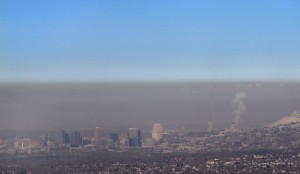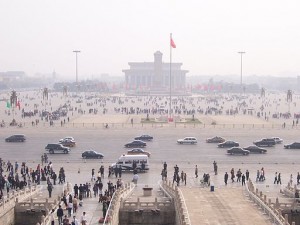
Artists from the U.S. and Asia combine efforts at the University of Utah for a “living gallery” aimed at bringing air quality to the forefront of Utahns’ minds. Called the Beijing-SLC Connect, the exhibit is being held at the Gittins Gallery on the University of Utah campus.
Event organizer Betsy Brunner said in an interview with Salt Lake Tribune that “the show starts a visual conversation about air pollution so we can engage new people and give them an outlet to express themselves and image it in a different way.”
One of the main topics of this conversation is the effect of air pollution on health. The Beijing-SLC Connect website highlights the link between exposure to pollution and the development of birth defects, chronic obstructive pulmonary disease (commonly referred to as COPD), respiratory illness, heart disease, cancer and nervous system damage. The Air Quality Index (AQI) is a uniform index used nationwide to measure the risk of developing any one of these side effects of pollution on a given day.

The Beijing-SLC Connect wants to make the issue of air pollution personal by allowing those who attend to contribute to existing works, create their own masterpieces as well as talk to the artists themselves. The exhibit is open Monday–Thursday, 10 a.m. to 4 p.m., until Feb. 20.




